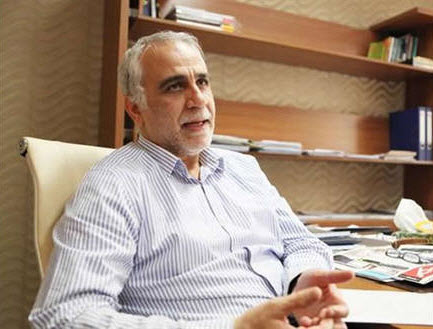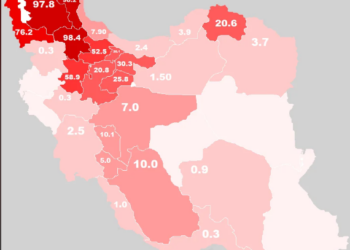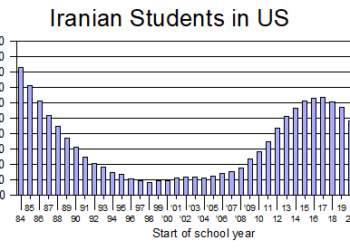May 16-2014

A former minister in President Ahmadi-nejad’s cabinet says the president was a congenital liar who broke many taboos, although not the ones that needed to be broken.
Parviz Kazemi discussed Ahmadi-nejad’s conduct as president in an interview with Nameh News. Kazemi was the welfare minister for one year, from August 2005 to August 2006, when he was dumped by the president.
Kazemi said the reason for his short tenure was Ahmadi-nejad’s lying and especially his dictatorial and irrational way of running the government.
Kazemi said Ahmadi-nejad operated his administration as if “there is only one general and everyone else is a soldier.” For instance, Kazemi said the president told him to implement the massive welfare reform program in one month. Kazemi protested that such speed was impossible and refused even to try. Ultimately, the plan took years to implement.
A second reason for his leaving, Kazemi said, was that the president was an inveterate liar, even about unimportant matters. “At noon, he would have a meeting with me…. And at night, with somewhere else, he would say he had been in Esfahan since the morning,” Kazemi said. “He would talk about it in a way and describe such details that even I would become convinced and say to myself that perhaps we had met the day before.”
Kazemi also accused Ahmadi-nejad of lying in his 2009 televised presidential debate with Reformist candidate Mir-Hossain Musavi.
Once Kazemi left the government, he saw Ahmadi-nejad’s behavior becoming more extreme. Kazemi said his opposition reached the point that before the 2009 elections he privately implored Majlis Speaker Ali Larijani to bar Ahmadi-nejad from a second term.
Kazemi said he told Larijani the Americans would have had to spend $5 billion to do as much damage to Iran as Ahmadi-nejad did in his first term. He said Larijani described Ahmadi-nejad in derogatory terms.
Kazemi described Ahmadi-nejad as “clever—but not for national interests.” He said Ahmadi-nejad was a “taboo-breaker”—but broke the wrong taboos, insulted associates, did not follow the Supreme Leader’s directions and ignored the grand ayatollahs.
He said Ahmadi-nejad was so bad that he, Kazemi, voted in the 2009 elections for Mir-Hossain Musavi.
Kazemi dismissed the popular theory that Ahmadi-nejad’s controversial chief of staff, Esfandiar Rahim Mashai, controlled the president like a puppet. Kazemi said Mashai was not very intelligent and described his brain as “on holiday.”
Kazemi said he felt Ahmadi-nejad backed Mashai for the presidency last year so that he could run the government through Mashai in something like the Putin-Medvedev arrangement in Russia.
On Ahmadi-nejad’s management techniques, Kazemi said the president carefully chose the deputy ministers. He said few of the people Ahmadi-nejad wanted as ministers would have passed the Majlis. So Ahmadi-nejad picked his ministers based on who could win Majlis backing and then brought his own people in as deputies to control the ministries.
This is not original with Ahmadi-nejad. Many people have accused President Rohani of a similar tactic.
In a separate interview with the Fars news agency, Ahmadi-nejad’s second-term intelligence minister, Heydar Moslehi, said Ahmadi-nejad demanded his resignation from the cabinet after Moslehi fired a deputy minister who was a friend of Mashai and reported what Moslehi was doing.
Moslehi said one of Ahmadi-nejad’s “clever tactics” was to announce major decisions at the end of cabinet meetings, thus forestalling debate. He said at the next cabinet meeting, Ahmadi-nejad announced that Moslehi had been removed from the cabinet.
Moslehi survived, however, as Supreme Leader Ali Kham-enehi intervened publicly for the first time in a cabinet matter and ordered Moslehi to stay put. That stunned and infuriated Ahmadi-nejad so much that he went on strike and refused to come to his office for a week.


















